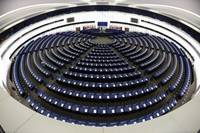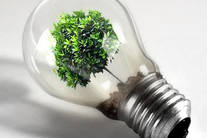
www.unimondo.org/Guide/Politica/Unione-Europea/How-Eurosceptic-is-the-new-European-Parliament-146958
How Eurosceptic is the new European Parliament?
Unione Europea
Stampa

Foto: Novinite.com
The session of the new European Parliament that has been inaugurated on July 1st, 2014, is likely to mark a profound change with respect to all the previous ones – seven, between the first election of 1979 and now. In this period the European Parliament has been more of a highly specialized technocratic body than a chamber for political discussion: elected Members agreed on virtually every high politics issue and disagreed only on technical details. The idea of an ever-closer union was shared by virtually all the elected parties in the Parliament and legislation proceeded almost by consensus. Things are now about to change as May’s elections have created the potential for a highly polarized political institution.
Expressing distrust with how the EU is run, almost one third of the votes in May elections were given to parties that are against the Euro-integrationist orthodoxy. and Following the negotiations that have taken place in June, Eurosceptics are now gathered into two blocs: one is Nigel Farage’s and Beppe Grillo’s Europe of Freedom and Direct Democracy (EFDD), the other is the European Conservatives and Reformists (ECR) mainly led by the British Conservative Party. This is the first time two strong Eurosceptic political groups seat in the Parliament.
Indeed, Eurosceptic parties have been an integral part of the European Parliament for decades. Eurosceptic parties, however, were rarely able to join together in the Parliament, because a political group requires a minimum of 25 Members from at least seven member states. Furthermore, even when Eurosceptic parties managed to join forces, substantial ideological discrepancies among parties led to their dissolution, as happened in 2007 with the Identity, Tradition and Sovereignty group: after only nine months of existence, the group had to be dissolved when the Greater Romania Party withdrew following remarks made by group member Alessandra Mussolini that Romanians are “habitual lawbreakers”. Historically, the heterogeneity of Eurosceptic parties weakened their political influence on EU legislation.
This session of the European Parliament is the first having the Eurosceptic camp joining together in two relatively coherent political groups that open access to important posts and resources. Indeed, the Eurosceptic campo remains highly heterogeneous. Some of the Members of the Eurosceptic groups have raised fascist whines and resurgent nationalist sentiments, while others have made a more democratic case against an ever-closer union, immigration, and the euro currency. Though varying enormously on the political spectrum, the two Eurosceptic groups maintain a basic agreement on the need for EU powers to be repatriated together with a country-first, protectionist viewpoint in immigration and economics.
The two Eurosceptic groups are still not big enough to form a majority and systematically block EU legislation. But their influence should not be underestimated. The Eurosceptic groups will not only make debates livelier but will also attempt to derange legislation and will slow-down effect on proceedings. The areas that are most likely to be affected are those having to do with budgetary decisions, immigration, and free movement of persons and goods. At the same time, if they want to be able to effectively influence EU legislation, Eurosceptic Members will have to be able to dialogue and negotiate with the other parliamentary groups, not only in the main assembly but also in the sub-committees. It remains to be seen whether the Eurosceptic Members, who have been traditionally more effective in spectacularizing plenary sessions rather than fostering dialogue across the parties, will embrace the culture of negotiation that characterizes the European Parliament.









